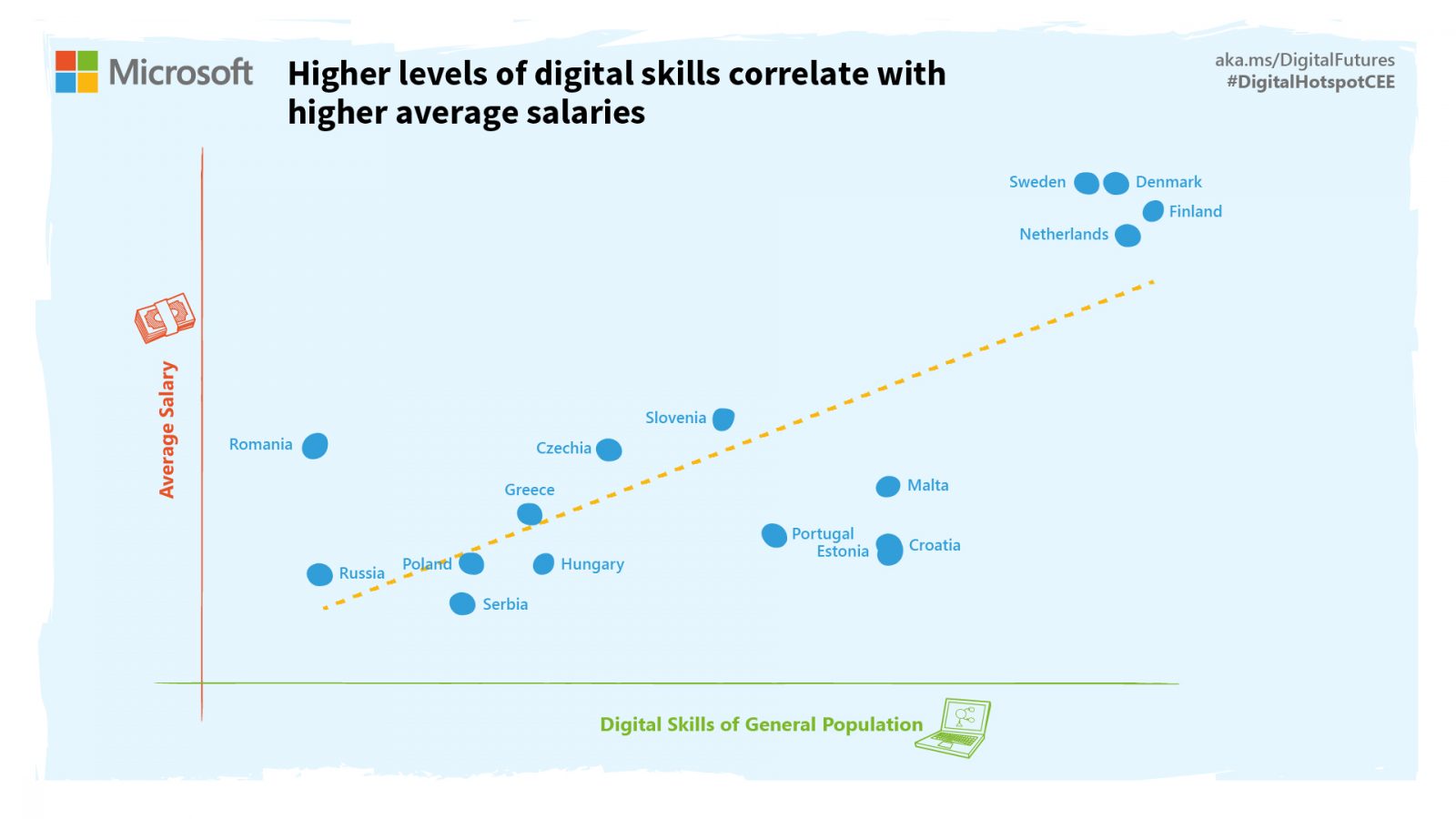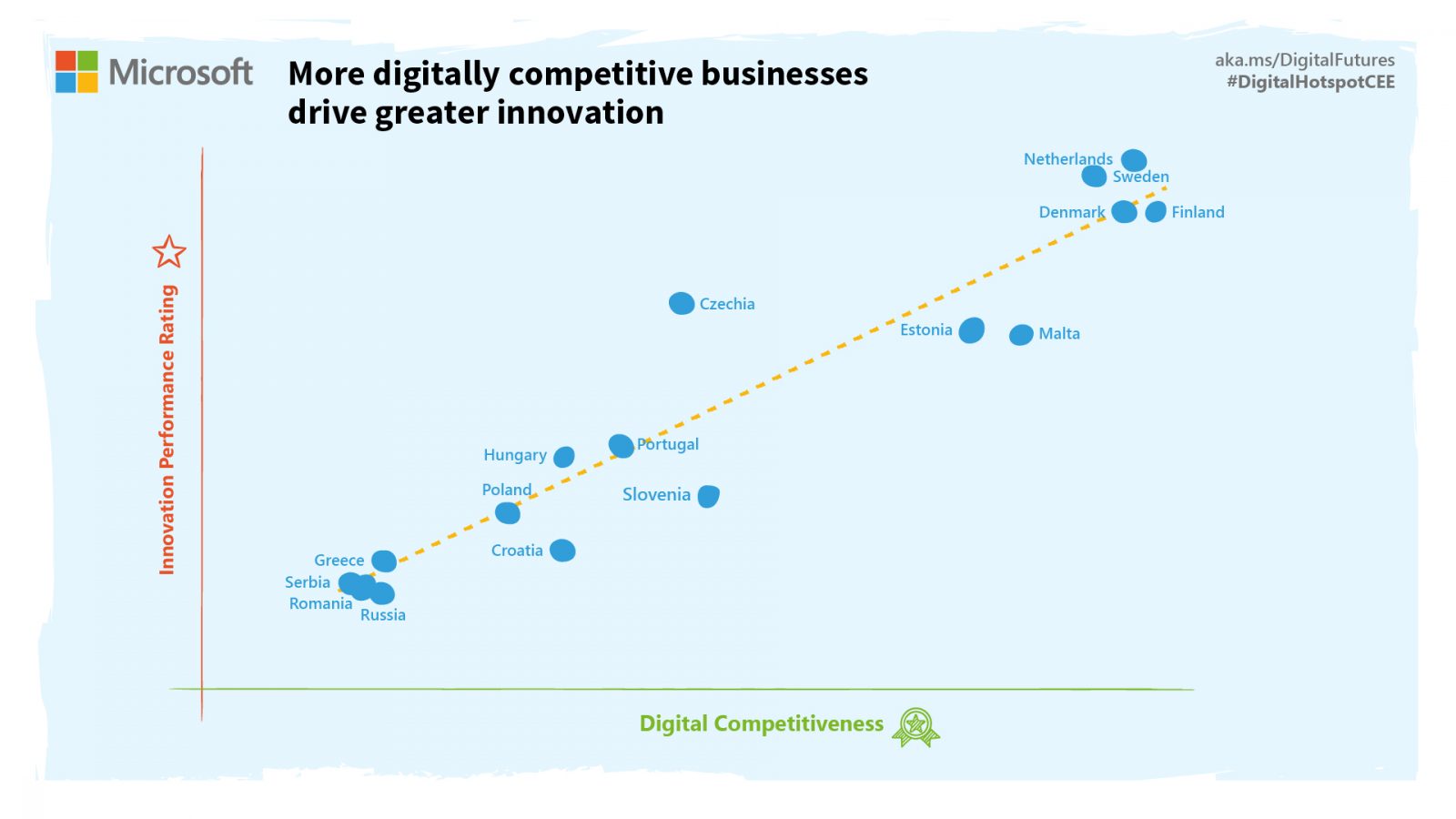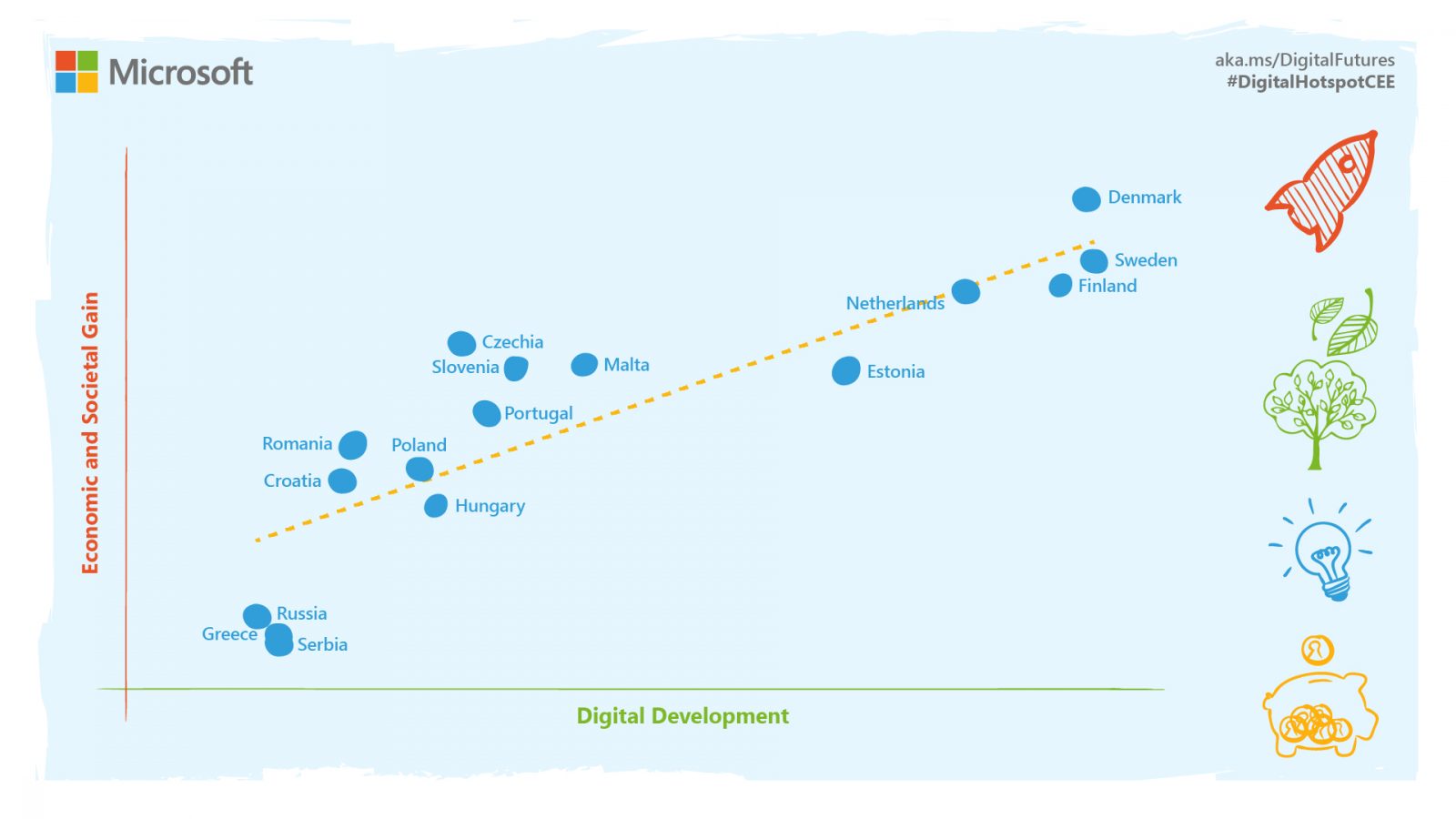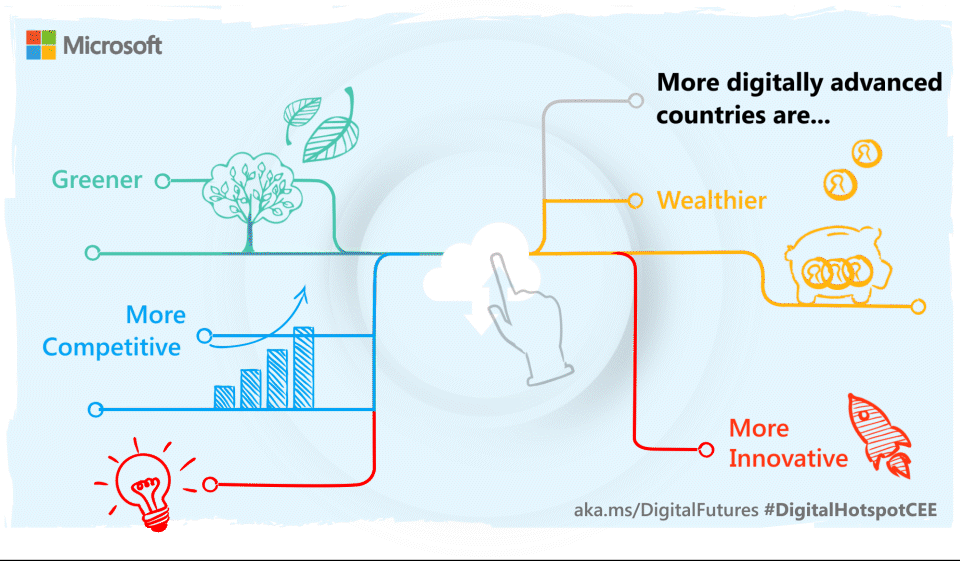
Digital transformation is thoroughly changing the way we live and do business. It is re-shaping entire industries and the delivery of public services. Evidenced by the acceleration we’ve seen over the past 2 years, we can move faster and deliver greater positive outcomes for people, the economy and society. To increase the pace of digital development, business and government leaders are in need of actionable insights. What can we learn from more digitally advanced nations that will help everyone map the fastest journey possible to a greener, wealthier, more innovative and competitive future?
To explore this question, we analyzed the digital journeys of 16 European countries – from those at earlier stages to recognized ‘front-runners’, including Multi-Country geographies Croatia, Estonia, Serbia and Slovenia.
Using over 1,000 data points from trusted public sources, we created the Digital Futures Index to map digital development and model its relationship with societal and economic outcomes. Here is where you can explore the interactive Index:
Empower a nation of digital achievers
To get more rewarding jobs, to be more prosperous and to build a greener, more sustainable future for ourselves, our families, and communities we need to become active, digitally proficient citizens. It will help us accomplish these goals:
- Digital skills: Countries where people have deeper levels of ‘everyday’ digital skills, and more actively use digital technology and services are more productive and earn more. It drives more innovation that helps the economy grow – creating new and better jobs, lowers air pollution and contributes to greener communities.
- Inclusive skills: Some of the strongest relationships to quality-of-life outcomes with higher levels of digital skills amongst women and people aged 45-64.

- Sustainable future: Research has found 50+ correlations with sustainability outcomes, with the strongest being private and public spending on digital technology and the digital skills of the general population. Having more digitally proficient citizens plays an important role in us all having cleaner air to breathe and a greener environment to live in.
- Digital services: Public interaction with government via digital technology and ease of setting up and running citizen-centric digital platforms also correlate to quality-of-life outcomes. It suggests that public sector digitization plays a key role in catalyzing digital proficiency through encouraging use of digital services in the widest population, by everyone.
No matter our level of digital proficiency today, we can always achieve more. The more digitally proficient and active people are, the more they benefit from the digital economy, which creates demand for more digital services, which enables people to do more.
Competitiveness is digital
Digitization can have a transformative impact, opening new doors for companies and creating opportunities for employees, that is why every business wants to innovate faster and be more productive so they can grow and compete better.
- Digital businesses are the engine of progress: Investment in digital infrastructure and technology and how businesses rank on ‘digital competitiveness’ have the strongest links with overall economic and societal outcomes.
- Technology foundations: Country-level investment (private and public sector) in ICT, Cloud, IoT, and AI has the strongest correlation with innovation overall. And businesses that spend more on digital technology and services, especially cloud computing, are more innovative and productive – twin priorities for every firm.

- IT workforce: Higher levels of innovation and productivity correlate with higher levels of ICT specialists in the workforce – having skilled IT pros provides businesses to mainstream advanced digital technologies and maximize their impact.
- Digital-first leaders: Higher levels of digitally-skilled 45-64 year old’s are linked to increased productivity and innovation. These ’50-somethings’ are more often in senior roles in business and can act as digital game-changers.
- Set innovation free: The flexibility in how teams connect and collaborate led to greater innovation, including more patents being registered, as well as enhancing productivity. Businesses can lock in these gains through permanently shifting to a hybrid working culture.
A real game-changer is having digitally savvy leaders who are attuned to getting the most strategic benefit from digital transformation. Microsoft’s data inquiry shows that digital-first leadership is a significant competitive advantage – and those stuck in analogue risk being left behind. It also underscores that embracing hybrid working isn’t just a ‘nice-to-have’ or predominately about resilience. The most important thing is making the best of your talent and fueling growth.
Digital-first government
The recovery of the last 2 years is still ongoing. Every decision of public finances to invest is being heavily scrutinized. Government leaders need to have confidence that where they choose to focus resources – including EU recovery funding – will deliver the best outcomes:
- Digital development is at the heart of everything that matters to people, businesses, and communities: It is associated with higher productivity & averages salaries; greater sustainability and lower air pollution; better innovation performance ratings and more patents.

- It takes a well-organized village to innovate: Innovation needs a connected ecosystem and a holistic approach by policymakers to intentionally cultivate it, encompassing business, the digital sector, digital infrastructure, start-ups, talent and the public sector (countries that have high levels of digitized public services see higher innovation and productivity).
- Digital government development: The ease at which new digital frontline services can be developed and delivered – based on a modern policy & regulatory landscape – is also closely tied with overall innovation levels.
Digitization has a strong relationship with a country’s environmental performance and lower air pollution and should be twinned with ‘green’ strategies as part of national recovery initiatives. The greatest impact will come from investing in both digital technology and skilling people.
Everyone has a role to play. It’s not where a country, business or person is today on their digital journey which is most important – it’s the speed at which they progress.
The Digital Futures Index was created to instigate debate amongst policymakers, leaders in private and public organizations, entrepreneurs, and innovators as well as the broader public as to how, together, we can realize our shared goals.
It is important for all of us, as it influences our lives, our careers, our futures.




